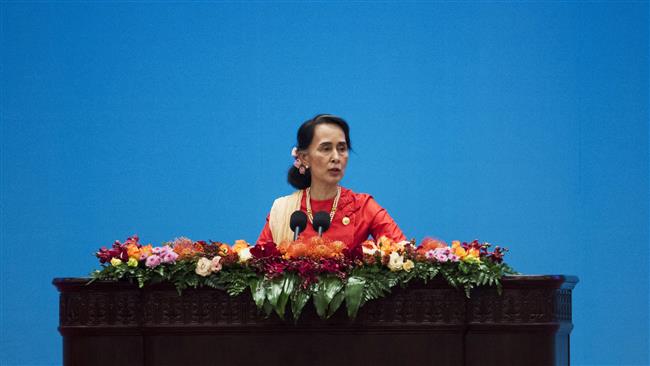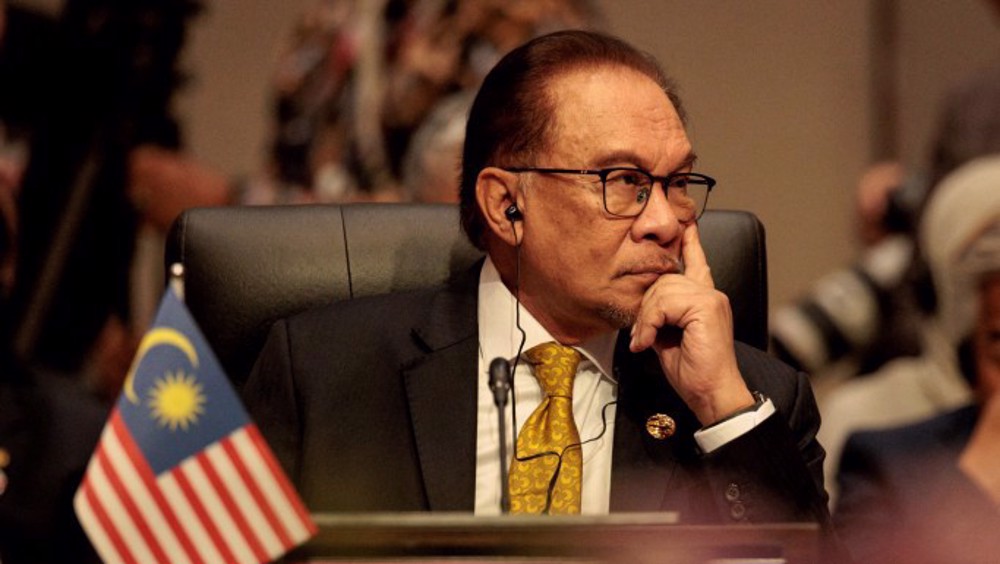Myanmar's powerful using defamation to silence critics: Report
Defamation cases have rocketed across Myanmar since de facto leader Aung San Suu Kyi took power in the Southeast Asian country in April last year, a report says.
The rights group Free Expression Myanmar (FEM) said in a report on Monday that the rich and powerful had intensified their use of draconian laws to muzzle civil society and the media over the past two years.
The report noted that at least 97 cases had been brought under the notorious Article 66(d) of the Telecommunications Act since March 2016 compared with just 11 under the previous military-backed regime.
Nearly all of the cases, which snare online satirists, activists and journalists, involve defamation charges covered by the law, the report added.
Every case that has made it to court has ended with a guilty verdict and a prison sentence, FEM said.
"Over the past two years, Article 66(d) has been the tool of choice for those in positions of power, who want to extend their punishment of people who are trying to hold them accountable, online,” the report said, adding that amendments to the law prodded by public discontent have had "no discernible impact."
The rights group said that there had been only three appeals in the past two years as convicts under the law feared failure would earn an even longer sentence.
The report also pointed out that at least two-thirds of complaints would have been rejected had defamation been properly defined.
Elsewhere in the report, the group reiterated calls for the "fundamentally undemocratic" law to be completely repealed.

This comes as a recent case against the editor of the Myanmar Now news agency is still ongoing. Swe Win stands charged with insulting a Buddhist monk infamous for fierce anti-Muslim rhetoric.
"The previous government used 66(d) to pursue people who criticized them and they just paved the way for the next government to follow," said one of FEM's researchers, Maung Saungkha.
The report comes as there had been high hopes that the Suu Kyi government would herald a breakthrough for freedom of speech after half a century of stifling military rule.
In addition, Suu Kyi has faced harsh international criticism amid several reports about systematic attacks by the Myanmar military and majority Buddhists against the persecuted Muslim community in the country. The Nobel laureate has done almost nothing to stop the heinous atrocities against the Rohingya.
VIDEO | Press TV's news headlines
VIDEO | London demonstration calls for UK to stop exporting arms to Israel
US secretly pressing countries into nixing Palestinian statehood: Cables
VIDEO | Israel impregnability perished
VIDEO | Top Iran official visits Syria to unite efforts in combating terrorism in region
VIDEO | Palestinians take to streets across West Bank to mark Prisoners Day
Israeli military’s new killing tactic: ‘Drones luring Palestinians to their death’
‘Unsubstantiated’: Iran rejects Argentine court's blaming for AMIA bombing










 This makes it easy to access the Press TV website
This makes it easy to access the Press TV website